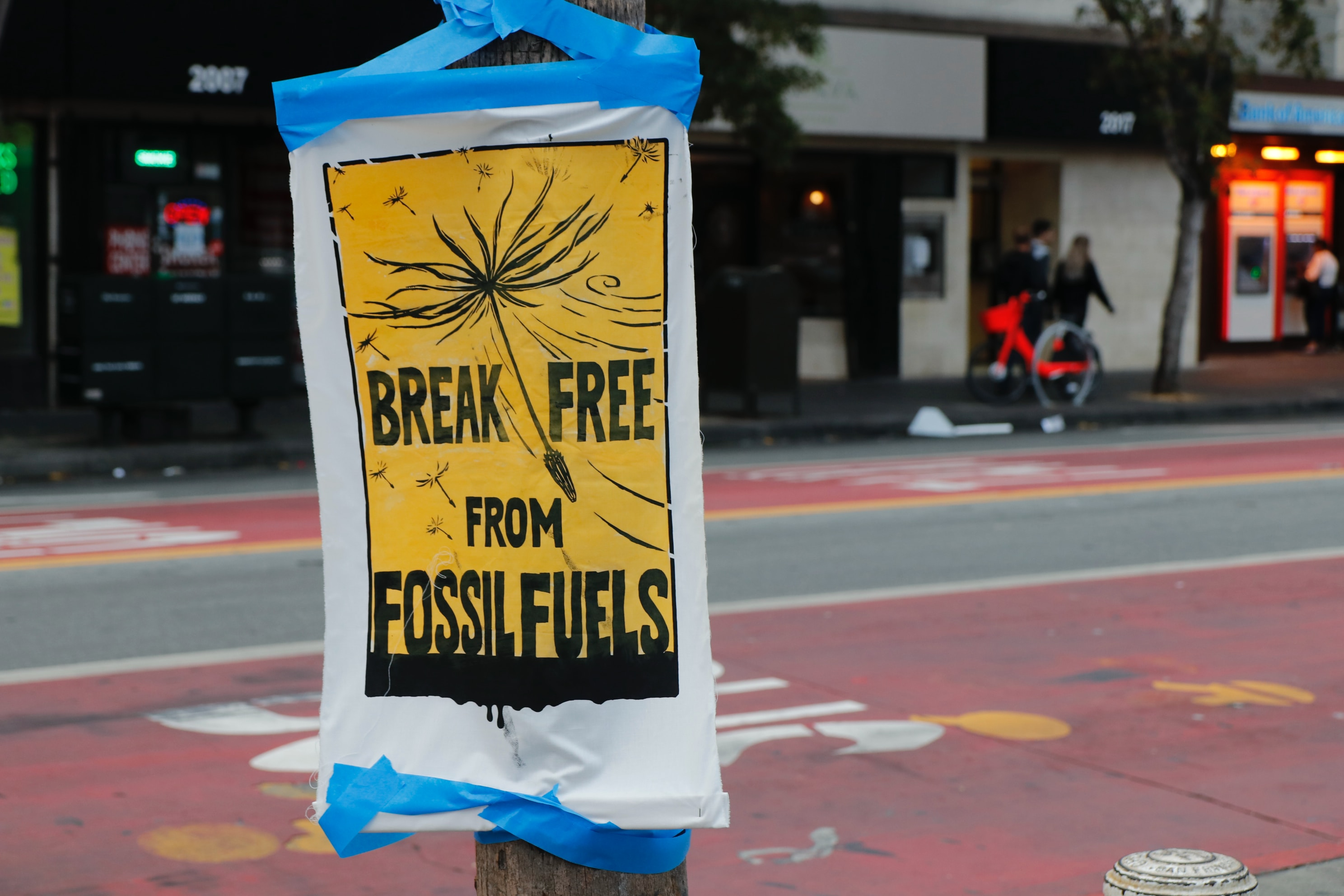Exploring B Corp Certification
We know how important it is to run Beautiful Businesses. And when it comes to making an impact, there’s no accreditation held in higher regard than B Corp.
We recently hosted an expert panel of speakers who talked us through their experience of the B Corp application and accreditation process and shared what they had learnt throughout it. With real-life examples and insights, it was truly inspiring to have their advice on how to go about it.
In this blog, we explore the benefits, the practicalities and the challenges that could lie ahead in your B Corp journey.
What is a B Corp?
A certified B Corporation, Benefit Corporation or 'B Corp', represents a standard that most purpose-led businesses dream of achieving.
According to the official website, B Corp is an enterprise that meets, “the highest standards of verified performance, accountability, and transparency on factors from employee benefits and charitable giving to environmental performance, supply chain practices and input materials." In other words - it’s the epitome of purposeful, commercially-minded organisations.
A certified B Corporation is a business that promotes social and environmental change through positive business practices. This can be from activities such as creating a more sustainable business with a focus on environmental effects, reducing inequality, lowering poverty levels, and working to build stronger communities.
Certified B corporations reap remarkable benefits; building trust with their audiences, improving employee retention and drawing mission-aligned investors.

What is the B Corp philosophy?
One of B Corp’s key philosophies is that business should be a force for good and that only by holding people accountable for their actions, with the removal of any greenwashing, can we make a real impact in combating climate change and improving social and environmental performance.
For smaller businesses, the process can feel daunting. Where resource is already stretched it’s easy to dismiss it as something unattainable. However, the benefits can be felt not only ‘by all people, communities and the planet’ as B Corp aims to, but by the businesses awarded the B Corp certification.
B Corp certification is now a symbol that you are putting people and the planet above profit, it offers not just a marketing statement, but a community network and the possibility of attracting an invested workforce who actually care about what you do.

Who is B Corp right for?
B Corp certification is suitable for anybody and everybody - any size of business from pre-startups through to £10bn+ global businesses can apply. It attracts interest from lots of different sectors, including food and beverage, tech, and product-based businesses and agencies.
Can charities become B Corp?
Unfortunately, the certification process is not suitable for charities, and its key focus is on profit-making companies. As the movement has grown, more customers and clients have started to look out for the certification of the brands they buy from.
What is involved in the assessment process?
The B Corp certification process has to come from the top, driven by the founders. It’s critical to ensure you’ve got the team on board, and that you have someone who’s dedicated and willing to get the application over the line.
It’s an ongoing process and you need the space to be able to document the relevant aspects of your organisation down to the finer details. This doesn’t start and end with the application process either - you’ll need to submit evidence to B Corp at regular intervals to keep your accreditation up to date. It’s important to understand the time commitment and make sure you have adequate resources in place.
Free example assessment
To get a flavour of what kinds of things you’ll need to be reporting on, a good starting place is the B impact assessment, which is free to complete.
How much time does it take to become a B Corp?
After that, the initial B Corp certification process can take 6 - 12 months, with you having to prove your actions against the B Corp framework throughout. B Corp isn’t trying to catch you out, they have a collaborative approach where they want you to achieve accreditation.
The B Corp analysts will help you to get there by offering advice and guidance to boost you along the way.
How often do you need to renew B Corp certification?
Every three years you’ll be required to complete your recertification, in a process that’s much more straightforward than the initial application.
How much does it cost to become a B Corp?
Becoming a B corp costs more than just the financial investment of the submission fee and annual certification fees, which can be found out here depending on your b corps' annual revenue and sales.
Currently, once you submit your assessment, a one-off submission fee of £250 (plus VAT) is payable to B Lab to ensure the company’s commitment to the full verification process. For B Corps, certification fees are then paid annually and are calculated based on your company’s total annual revenue and on the last set of audited accounts.
Time and investment from your team
It’s also worth thinking about the time investment from you and your team. If you’ve got a dedicated member of your team managing the accreditation process, what does this extra financial output look like? This will vary from business to business, but this is likely to be one of the bigger costs associated with the certification process.
Finally, there are the potential changes that you as a business may need to make in order to fit in with the B Corp framework - whether that’s the materials or processes you use if you’re a product-based business or the operational costs associated with service-based businesses, such as travel, technology and general office maintenance.

Challenges of gaining Benefit corporation status
While many sing the praises of the B Corp accreditation, it’s important to be aware of the challenges that may lie ahead. It’s not an easy road and will require some potentially disruptive changes to your business that could take a while to get used to.
For example, having to “evidence” what you’re doing during the application process can be intensive - you need to document your behaviour and processes across different categories.
Transparency and employee investment
Bringing others into the decision-making process can sometimes feel time-consuming and frustrating. However, having transparency is not only part of the B Corp framework, but will help you grow as a team and instil a level of employee investment in your purpose.
Culture
In order for it to be successful, you’ll need a long-term culture shift. It’ll take dedication across the board, and you’ll have to find the right tone when approaching the subject to ensure you encourage positive action, rather than it feeling like more work with no personal reward.
Business premises
Finally, where your business is located could also raise challenges. If your business premises are owned by somebody else, they might not necessarily have direct control over the evidencing linked to the premises. Do what you can by controlling waste management, suppliers and working with the local council to find creative ways to reduce, reuse, and recycle.

Benefits of B Corp accreditation
“There is a new business element. The B Corp community is vibrant and brilliant - we know we share the same values and it almost becomes a shorthand that skips that initial sales process. You’re a B Corp? We’re a B Corp - let’s work together.”
-
Jenny Kitchen, YOYO
Becoming a B Corp is now becoming something that acts as a badge of honour and a filter for winning new business.
It becomes a self-fulfilling prophecy in the way that if you are B Corp certified and have to provide evidence that you use suppliers that meet certain standards, then by choosing a supplier that already is a B Corp certified one, you feel as if their company's business model itself is that much more trustworthy.
With the market demanding sustainability throughout B2B and B2C, from a business and procurement standpoint, it’s become even more important to show that you are playing your part in making a positive impact on the business world.
Whilst lots of businesses can make statements on what they’re doing, people are getting better at pulling each other up on the authenticity of these claims and holding them accountable. B Corp certification cuts through any of the greenwashing, as those who have gained it have to write an annual impact report for everyone to see.
As the workforce becomes more conscious about how they spend their time too, the competition for highly-skilled, engaged talent has soared. Expectations across the board have been raised, with people valuing meaningful work and work/life balance more than past generations. By wearing the B Corp badge, you’ll not only attract candidates that potentially share your values but hopefully retain them too.
“This people and planet piece of b corporation is so much bigger than any one company. I’ve seen competitors collaborate to make each other stronger and better - that in itself is a reflection of the B Corp community.”
-
Andy Hawkins, Business on Purpose

Alternatives to B Corp certification
There are many impact-led communities out there, each with its own way of supporting members in creating a positive impact on the world. If B Corp feels that step too far right now for you, that’s not to say you should be put off entirely. Every step you take towards creating a more sustainable business is valuable.
Carbon offsetting
A good start when wanting to make a positive impact in the world is to look at carbon offsetting. Companies such as Ecologi offer simple and impactful climate solutions for your business, by helping calculate the carbon your business produces and offsetting it by planting trees. Play it Green offers a similar service, helping you reach net zero in a subscription-based format.

The expert panel
This blog was written with help from our amazing panel, who took the time to offer their advice in our recent panel event.
Andy Hawkins
Andy founded Business on Purpose as a spin-off from his former company, after going through the B Corp application process himself. After he’d successfully gained the sought-after title, friends began to ask for assistance with their own applications - which is when he realised how much he’d learnt along the way and how much he could help others do the same.
Jo Swift
Jo is the MD of Greenhouse Agency. Their mission is to make positive change happen by partnering with game changers who have ambitious ideas and sustainable solutions for a sustainable future. Greenhouse was one of the first sustainable comms agencies, and when they gained B Corp accreditation in 2017, they were one of the first agencies to do so. Jo explained the significant financial and new business benefits they had felt from becoming a fully certified B Corp company, including learning about corporate governance structure and how to equip the team with the knowledge to contribute to meaningful decisions. As part of this, they’ve carried out lots of training as a group to express the importance of growing sustainability and generating profit.
Jenny Kitchen
Jenny is the CEO of Yoyo Design, who create engagement between brand and people by blending creativity with technology and have built a team that's passionate about creating innovative digital experiences for their clients. Jenny spoke of the opportunities that have opened up off the back of becoming a B Corp, including attracting and retaining talent. She believes new generations want to be a part of something bigger and more meaningful than just making money for shareholders.
Small steps for big change
What would you recommend doing today that would make the biggest difference?
“Look at your pensions. Individually and for your organisation. Where we spend and invest our money makes the biggest difference across the world. Look at more ethical pension pots.” - Jenny
“Read ‘Let my people go surfing’ - written by the owner and founder of Patagonia - this book gives inspiration and motivation to build a transformative impactful business.” - Jo
“Login to the B Impact Assessment and take a look at how you get started. You don’t have to join a programme, the B Corp community is really supportive to engage and give you advice to get started on your journey.” - Andy
Resources
Interested in finding out more?
Read more about the B Corp movement here.
Looking to find out the carbon footprint of your business? Use the Ecologi Zero tool here.
Want to know how beautiful your business is? Check out the Beautiful Business Assessment here.
We try really hard to keep our blogs up to date, but sometimes the information and advice given are only correct at the time of writing. If you would like to discuss anything you read in our blogs please contact us.

